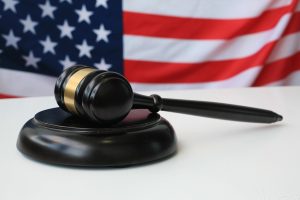Facial Recognition Technology Social networking sites have come under increased scrutiny over the last few years due to user privacy and security concerns. Snapchat, one of the multimedia messaging apps, follows this trend. An Illinois group’s lawsuit against Snapchat for violating the state’s Biometric Information Privacy Act (BIPA) has attracted a lot of media attention. This article details the outcome of the snapchat class action lawsuit illinois, the main concerns, downsides, and possible outcomes.

BIPA Violations Were Reported
According to the complaint, Snapchat violated BIPA by collecting, storing and using users’ facial biometric data without their knowledge or consent. According to BIPA, an individual’s consent is required before a company can store and use biometric information. The kraft velveeta mac and cheese lawsuit is another high profile class action related to a popular product.
Privacy and Security Are Guaranteed
The lawsuits have raised concerns about the privacy and security of user data on social networking platforms more broadly. This underscores the need for companies like Snapchat to prioritize the security of customers’ personal information and communications.
Several Snapchat customers in Illinois have filed a class action lawsuit against the company, alleging that the company’s actions violate their biometric privacy rights as guaranteed under BIPA. The court case took place in Illinois. By Snap Inc. the complaint aims to attempt to use facial recognition technology to hold the company liable for illegal business practices.
The lawsuit was certified as a class action in 2020, and allowed anyone who downloaded and used the Snapchat app in Illinois from 2014 to 2020. As a result, the number of individuals who used Snap Inc. would go to trial significantly expanded, potentially creating more serious legal problems for the company. Read more on it https://www.usatoday.com/story/tech/2022/08/23/snapchat-illinois-class-action-lawsuit-settlement-35-million/7876602001/ .
The Possible Potential Consequences
Snap Inc. may be required to adjust its data collection and processing practices if it chooses to settle the complaint out of court to enforce BIPA compliance and compensate those customers who have paid the bill. If they do not violate BIPA, damages for plaintiffs can be very substantial. However, this is subject to the findings of the court.
In addition to the precedent set in Illinois, the case could have far-reaching implications for interpreting and enforcing biometric privacy protections in other states with laws similar to Illinois. The findings could backfire on how other digital companies handle biometric data and user privacy, possibly leading to new policies and regulations across the industry.
Final Verdict
As an outcome of the Illinois class action lawsuit against Snapchat, a settlement of $35 million was finalized by August 2022. By end of January 2023 the residents started getting cheques from them.
As of now we don’t have answers for the below Questions
snapchat lawsuit payout date
snapchat lawsuit 2022 claim
snapchat lawsuit 2022 claim form
snapchat biometric lawsuit form
Conclusion
The class action lawsuit filed against Snapchat in Illinois exemplifies the tension between innovations by digital companies, and the need to protect users’ personal information and data is a helpful reminder that it should that digital companies prioritize insight and access when it comes to collecting and using sensitive biometric data.
Related Posts
All You Need to Know About the Oregon Firearms Federation Lawsuit
Why the Momentum Solar Lawsuit Is A Special One? A Report
What The Country Knows About Lawsuit Against Texas Pete Hot Sauce
What is So Special About the great western buildings lawsuit Case?





